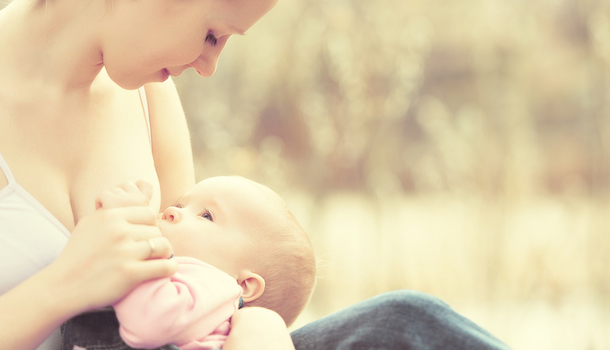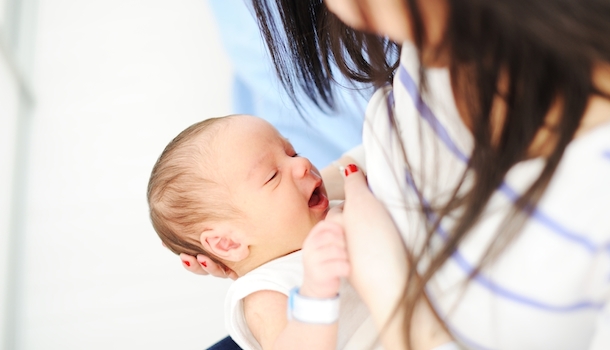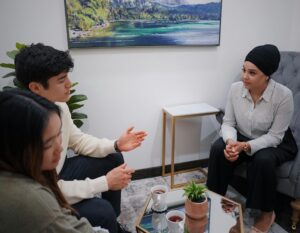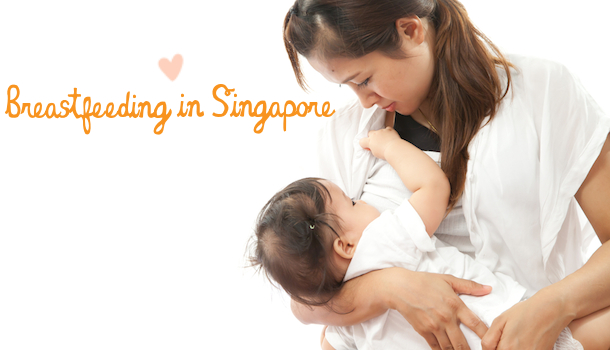
Practices and support for breastfeeding mamas in Singapore
If you’re expecting a baby or have recently given birth, you’ll be familiar with the pressure to nurse your new baby. In Singapore, as with general trends in the developed world, breastfeeding rates declined from the 1950s – hitting an all time low in the 70s – before slowly rising again as awareness of the health benefits increased. To find out more we spoke to Lactation Consultant, Wendy Deshpande about current breastfeeding practices in Singapore, finding support in the workplace and where mamas can get help when they need it.
What are breastfeeding rates like in Singapore these days?
Singapore’s First National Breastfeeding Survey took place in 2001. 2,098 local mothers were interviewed by telephone at two and six months post-partum.
In 2001, 2,098 mothers were interviewed and 94.5% had initiated breastfeeding. At 2 months, 49.6% were still breastfeeding, and 21.1% at 6 months (any breastmilk, not only exclusively). In 2011, 1,962 mothers were interviewed and 99% had initiated breastfeeding. At 2 months, 80% were still breastfeeding (28% exclusively) and 42% were still breastfeeding at 6 months (1% exclusively).
Since 2001, the number of mothers continuing to breastfeed has increased dramatically, and is now at rates similar to those seen in the UK. Even so, they are still much lower than than rates seen in the U.S and many other countries in South East Asia.
What has changed?
The Convention on the Rights of the Child 2003 Report
A report in 2003 by the International Baby Food Action Network for the United Nations, titled Convention on the Rights of the Child, attributed Singapore’s low breastfeeding rates to the lack of ‘Baby Friendly’ hospitals as well as short maternity leave entitlements. The International Baby Food Action Network’s 2011 report again noted that there were no ‘Baby Friendly’ Hospitals and there was poor public awareness of the importance of breastfeeding.
Global Effort – Launch of Baby Friendly Hospital Initiative
The Baby Friendly Hospital Initiative (BFHI) was launched by the World Health Organization and UNICEF in 1991. It’s a worldwide programme that encourages maternity hospitals to implement practices that protect, promote and support breastfeeding. Hospital staff undergo training and assessment to ensure the hospital is meeting certain criteria before it’s accredited as being ‘Baby Friendly’.
The Baby Friendly Hospital Initiative in Singapore
Since the Baby Food Action’s report has been published, the Health Promotion Board has been actively promoting breastfeeding in Singapore. With the HPB’s guidance and support, 3 public maternity hospitals have received ‘Baby Friendly’ accreditation:
* National University Hospital became Baby Friendly in August 2013
* Singapore General Hospital followed in November 2013
* KK Women & Children’s Hospital was accredited in June 2014
So more women are breastfeeding, but where are they?
Confinement Practices
Many new mothers in Singapore follow traditional confinement practices. The new mother observes a period (between 30 and 44 days) of being confined to her home to rest following the birth of her baby, where she follows practices that protect her and her baby as well as enabling her to recover from the delivery. These practices vary between different ethnic groups and often include eating confinement foods that aid in recovery and boosting breastmilk supply. These traditional practices mean that many new mums don’t venture out with their new babies.
Where can mothers go for breastfeeding help in Singapore?
Unlike most European countries, Australia and New Zealand, Singapore has no routine follow-up care once mum and baby are discharged from hospital after birth. Given that most mums are discharged between 2 and 4 days after deliver, many experience breastfeeding challenges once they return home.
Hospitals
Many mothers are unaware that they can return to the hospital to see the lactation consultant there. The postpartum units also offer guidance on other babycare issues.
Paediatricians and polyclinic staff
Mums can access polyclinics or paediatricians to monitor the growth and well being of their babies. However, these professionals may not have received adequate breastfeeding training.
Social media and the Internet
Many mums rely on social media and Google to answer their questions on breastfeeding. It’s important that mothers check to see that the source of information is reliable as misinformation abounds online.
Breastfeeding Mothers’ Support Group of Singapore (BMSG)
The BMSG offers a telephone helpline and email counseling for mothers needing breastfeeding advice.
While these avenues are lifelines for many mothers, there are few options for face-to-face expert support after being discharged from the hospital. A small number of mothers choose to consult a private lactation consultant. This lack of support after returning home from hospital may be a contributing factor for why many mums giving up breastfeeding in the early weeks.
What about breastfeeding mothers who are employed?
Since the CDC report in 2003, maternity leave has been extended from 8 to 16 weeks in Singapore. Unfortunately this does not apply to foreign workers who often only get 8 weeks leave. In addition, neither group is entitled to breastfeeding breaks. From May 2013 onwards, fathers became entitled to a week of paternity leave.
In August 2014, The Employer’s Guide to Breastfeeding at the Workplace was produced jointly by the National Trades Union Congress U Family, the Health Promotion Board and the Singapore National Employers Federation. It provides employers with information on what they can do to support women to continue breastfeeding after they return to work. This was in response to a poll done by NTUC in April 2013; in this poll, mums who had returned to work were interviewed and 50% of those interviewed had stopped breastfeeding as a result of returning to work.
Breastfeeding in public?
There is no legal ruling about breastfeeding publicly in Singapore. Public breastfeeding is not against the law per se, but breastfeeding mums are also not legally protected.
The Breastfeeding Mother’s Support Group received clarification on nursing in public from the then Director of Public Affairs for the Singapore Police Force in 1999. In a letter, the SPF states that “It is not an offence to breastfeed in public if the woman is decently clad and she does not expose her breast more than is necessary to breastfeed her child.” The statement is somewhat subjective and is perhaps one of the reasons why mothers go to so much trouble to cover up when breastfeeding in public. As is the case for new mums all over the world, mothers here may be embarrassed and anxious about revealing any breast or post-pregnancy tummy, preferring to breastfeed in private.
NTUC has published a map of Public Nursing Rooms in Singapore and various other organisations (including us at Sassy Mama!) have also produced their own guides to finding appropriate breastfeeding rooms in Singapore.
Making breastfeeding a part of everyday life in Singapore…
Lots of mamas in Singapore are breastfeeding, but many do not go out with their babies in the early weeks. When they do, they may use feeding rooms or give expressed milk when out. Many mothers return to work soon after their babies are born and they may give up breastfeeding earlier than they want to because they are unable to get the help they need or are unable to juggle breastfeeding with the demands of employment.
On 2nd August 2014, as part of World Breastfeeding Week and the Big Latch On, the BMSG organized Big Latch On events at four cafés across Singapore. These events were part of a wider initiative to normalize breastfeeding and encourage premises to welcome and support nursing mothers. The BMSG also hopes to produce signs for premises to display to welcome mothers to breastfeed inside.
Ultimately, if we want breastfeeding to become the norm, we need to see mothers out and about breastfeeding their babies and supporting other mothers to do the same.






 View All
View All

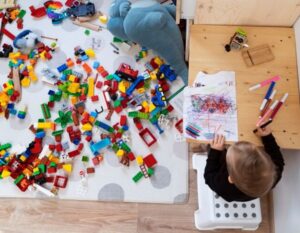
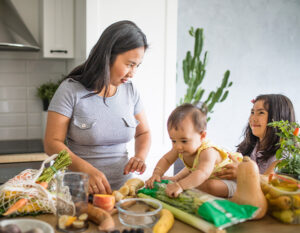

 View All
View All
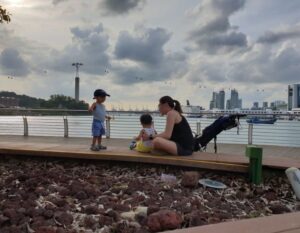
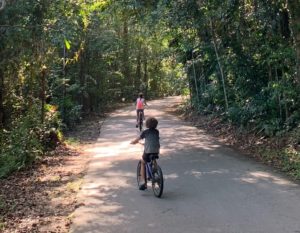









 View All
View All


